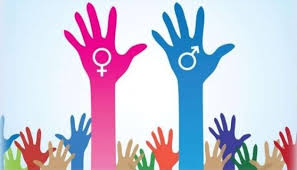Gender Law and Anti-Discrimination
Introduction
Gender law plays an important role in modern legal systems and aims to ensure equal rights and opportunities for all people, regardless of their gender or gender identity. Combating discrimination is a key aspect of protecting human rights and achieving gender equality.
International Legal Framework
Convention on the Elimination of All Forms of Discrimination against Women (CEDAW)
The main document regulating gender equality at the international level is the Convention on the Elimination of All Forms of Discrimination against Women, adopted by the UN in 1979. The main provisions include:
- Prohibition of discrimination: States parties are obliged to eliminate discrimination against women in all its forms.
- Equal rights: ensuring that women have equal rights in political, economic, social, cultural and other spheres.
- Special measures: temporary special measures to accelerate the achievement of de facto equality between men and women.
International Covenant on Civil and Political Rights (ICCPR)
The International Covenant on Civil and Political Rights, adopted in 1966, also contains provisions on equality and the prohibition of discrimination:
- Article 3: Ensuring equal rights of men and women to the enjoyment of all civil and political rights.
- Article 26: All persons are equal before the law and are entitled to the equal protection of the law without any discrimination. You may also be interested in the following articles: advice of a lawyer, legal advice, analysis of documents, legal analysis of the situation, written advice, verification of documents by a lawyer, lawyers documents, online legal advice, online lawyer, legal opinion, legal opinion of a lawyer, lawyer online.
International Labour Organization (ILO)
The ILO has adopted several conventions aimed at ensuring gender equality in the workplace, including:
- Equal Remuneration Convention No. 100 (1951): ensuring equal pay for equal work.
- Discrimination (Employment and Occupation) Convention No. 111 (1958): prohibits discrimination in respect of employment and occupation.
European Law
European Convention on Human Rights (ECHR)
The European Convention on Human Rights contains provisions aimed at protecting against discrimination:
- Article 14: prohibition of discrimination on any ground, including sex, in the enjoyment of the rights and freedoms guaranteed by the Convention.
Charter of Fundamental Rights of the European Union
The EU Charter of Fundamental Rights, which has been in force since 2009, contains several articles on gender equality:
- Article 21: Prohibition of discrimination on the basis of sex and other grounds.
- Article 23: Equality of women and men shall be ensured in all spheres, including labour and remuneration.
National Legislation
Constitutional provisions
Many countries have included provisions in their constitutions on equality and the prohibition of discrimination on the basis of sex. For example, in Ukraine, the Constitution guarantees equal rights for women and men (Article 24).
Special Legislation
Countries also adopt specific laws to combat discrimination and ensure gender equality. For example:
- The Law on Ensuring Equal Rights and Opportunities for Women and Men: establishes the legal framework for ensuring gender equality in various spheres of public life.
- Law on Preventing and Combating Domestic Violence: aims to protect victims of domestic violence, the majority of whom are women

































